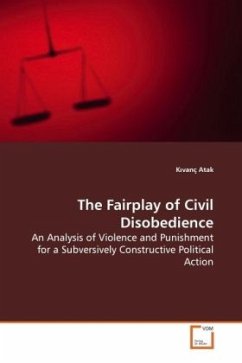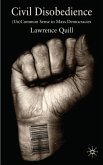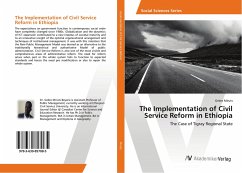Among several ways of encountering undesirable
outputs of modern state apparatuses, civil
disobedience appears as an initially subversive, yet
subsequently constructive form of political action.
The wisdom and significance of the term rely
particularly on its contribution to the dynamic
repertoires of concepts such as state authority and
legitimacy, political obligation, democratic
participation, collective action and civil society.
However, various dilemmas in its practice pose a
number of questions worth being addressed in a
contemporary age of political philosophy. This book
focuses on violence and punishment as most frequently
expressed problems in cases of civil disobedience. In
this respect, the theory of fair play provides a
fertile field to rejuvenate the recurrent patterns of
approaching these two central issues in an
intellectually provocative way.
outputs of modern state apparatuses, civil
disobedience appears as an initially subversive, yet
subsequently constructive form of political action.
The wisdom and significance of the term rely
particularly on its contribution to the dynamic
repertoires of concepts such as state authority and
legitimacy, political obligation, democratic
participation, collective action and civil society.
However, various dilemmas in its practice pose a
number of questions worth being addressed in a
contemporary age of political philosophy. This book
focuses on violence and punishment as most frequently
expressed problems in cases of civil disobedience. In
this respect, the theory of fair play provides a
fertile field to rejuvenate the recurrent patterns of
approaching these two central issues in an
intellectually provocative way.








